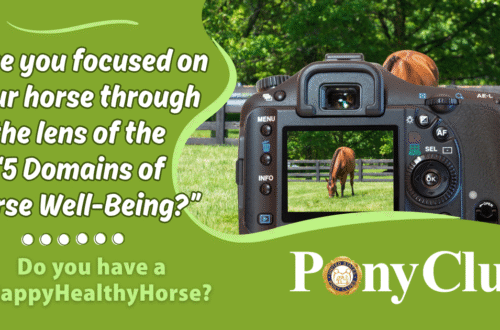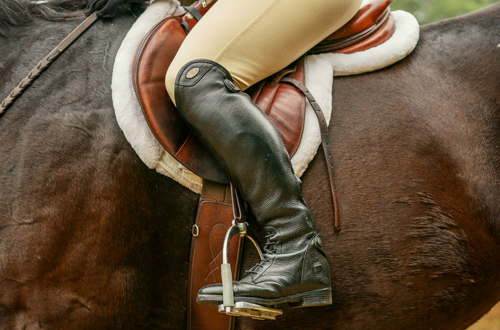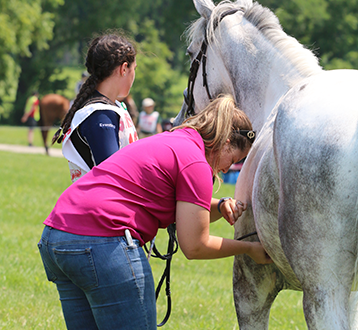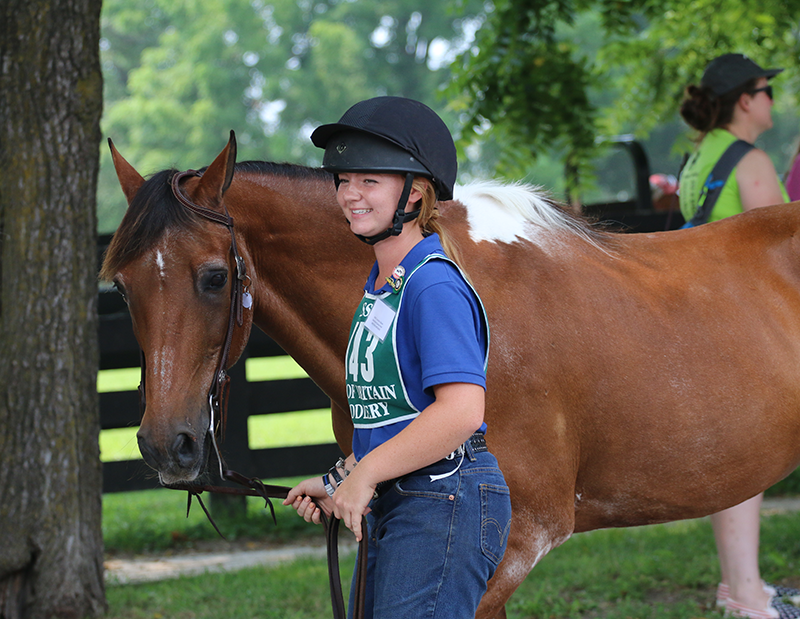
Senior Horse Care Dos and Don’ts
Brought to you by Triple Crown Nutrition
Older horses require adjustments to their feeding program and special management as their needs change over time. It can be tricky to determine the right combination of feed and care for them, particularly if they have digestion challenges, poor teeth, or lameness issues. If you’re feeding a senior horse, you’ll want to avoid these common mistakes.
DO NOT disregard ease of digestion. Horse’s digestive systems slow down with age, and properly digesting feeds and forages can cause issues for your senior horse. Mature hays with tougher and stemmy fiber do not digest as easily in a senior horse’s hindgut and may be difficult to chew if they have poor dentition.
DO look for chopped or cubed alfalfa and high-quality softer grass hays. These are much easier on a senior horse’s digestive system. Similarly, feed should be well processed, so it is easier to digest and absorb essential nutrients in their feed.
DO NOT under or overfeed vitamins and mineral. Slower digestion can mean your horse is not absorbing the nutrients they need. Because of this, supplementing things like fat and fiber may be necessary for your aging horse as ensuring proper vitamin and mineral fortification is important. However, it is possible to over-supplement certain nutrients.
DO talk to your veterinarian about your horse’s needs and check your feed and forage nutrient levels. The feeds you may be feeding may already be fortified with enough micronutrients to balance nutrition levels, but your veterinarian will know if supplementation is necessary.
DD NOT forget to monitor your horse’s teeth. The first stop for all nutrition in the process of digestion is through mastication, the fancy term for when the horse chews and his teeth break down feed. As horses age, their teeth change and can wear unevenly. Senior horses can have problems chewing or even experience pain while chewing because of this.
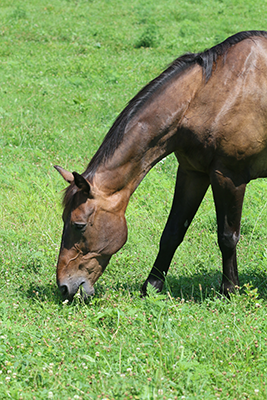
DO schedule regular equine dentist visits to keep ahead of potential dental issues. Your veterinarian, if they do dental work, or an equine dentist, can keep an eye out for problems. Catching things early can be key to keeping your horse healthy.
DO NOT continue feeding your horse the same old thing he has always eaten. He may need a change in his diet, and a veterinarian can give ideas for feed that is easier for your pony to chew or that meets any needs if any health conditions have developed as he aged.
DO consider switching to a chopped forage, or soaking hay cubes in water to make chewing easier. Preparing feed as a mash can also be beneficial, as well as feeding on the ground to help prevent choke.
DO NOT make mistakes when soaking hay. Senior horses are prone to developing metabolic diseases. Therefore, managing nonstructural carbohydrate (NSC) levels in your senior horse’s feed and forage becomes crucial to maintaining his overall health. To help reduce starch and sugar levels, you may want to soak forages for 15 to 30 minutes before feeding. This process is intended to remove some of the sugar and starch from the hay. Be sure to soak only for a short period of time and dispose of the water after soaking the hay.
DO soak only enough hay for one feeding at a time. You never want to soak too much at a time, because storing soaked hay can cause mold and bacteria growth, making the hay unsafe for consumption. Always drain the water from the hay and discard it prior to feeding.
DO NOT forget to prioritize hydration. Senior horses tend to get dehydrated more easily than their younger counterparts.
DO ensure your horse always has access to fresh, clean water. You can add water to feed to make a mash and provide more hydration. Adding water is also recommended for horses with poor dentition.
DO NOT feed your senior in a large group setting. Older horses can be bullied in a group feeding session. Younger horses can push them to the side, preventing them from getting their full serving of feed and forage.
DO bring senior horses to a separate feeding area where they will have plenty of time to eat and drink. Seniors tend to eat slower, so feeding in a separate area allows your senior horse to eat all of his feed without being pushed out by a younger horse.
By following these tips, you are well on the way to setting your senior horse up for success.
Have additional questions about feeding your senior horse? Talk to a Triple Crown Feed expert for additional feeding recommendations. www.triplecrownfeed.com or call 800-451-9916.
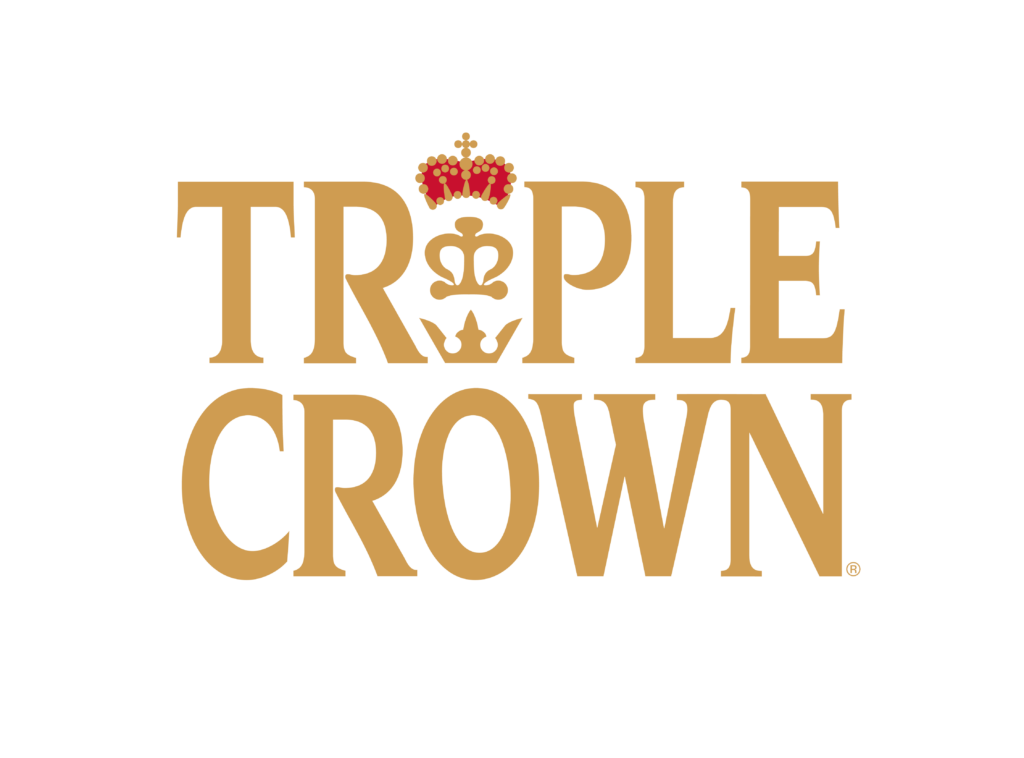
About Triple Crown Nutrition — Official USPC Feed Sponsor
Triple Crown offers premium equine feeds that provide the exact nutrition your horse needs, designed to help support immunity and gut health. Learn more at TripleCrownFeed.com.
This article about senior horse care was originally published in the Summer 2022 issue of Discover USPC magazine. Read more content from that issue.



